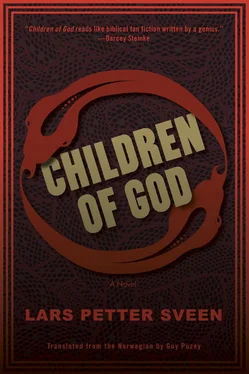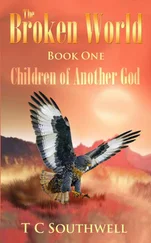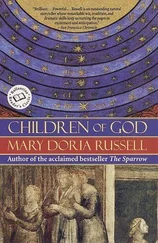Sometimes we do things I don’t even try to understand. Reuben says it’s something inside us. When I gave the others the signal, it was over for those two very quickly. We are what we are, we do what we do.
“I thought they’d be tough,” said Reuben, “but they were as soft as overripe fruit.” He was standing behind me. “What are you doing?” he asked. “There’s nothing left.”
I looked down at the sand and the stones I was raking up with the sticks in my hands.
“There are four of us,” I said, “and two of them.”
“They were soft,” Reuben insisted. “I could feel it. They were believers, the sort who kill for their beliefs. But they can’t believe in killing like we do.”
“I don’t believe in anything,” I said, “and you’re talking crap.”
“We’re craftsmen,” said Reuben. “They were soldiers without an army.”
“Where’s Jehoram?” I asked, throwing away the sticks. It would soon be dark.
“He’s over there finishing off with Nadab.” Reuben stared at the trees, the bushes, and the heights off to the west. “I don’t like Nadab’s talk,” he said.
“We’ll make a bonfire over there,” I said.
“He didn’t join in,” Reuben went on. “When one of us doesn’t join in, it breaks us apart. He’s been different lately.”
“Leave him alone,” I said.
“I don’t like any of them,” said Reuben. “Lesser knifemen, rebels, that Jesus Nadab talks about, or all the other prophets popping up like weeds after the rain. They cause chaos. None of them can be trusted.”
“Like weeds after the rain? You’re talking as if you were one of them,” I said, walking over to a small thicket nearby. “We need wood for the fire. Come and lend me a hand.”
Reuben spat, muttered something about prophets and animal dung, and headed back over to where Nadab and Jehoram were digging.
“We do what we can,” I said to him as he left. “We take what we can get.”
The two men who were being buried and covered with stones had been younger than us. Both seemed ready for their mission, and both seemed surprised at how quickly it could all end. One of them was missing a finger on each hand, and the other had no facial hair, and there they were talking about killing priests at the Temple in Jerusalem. “No one who collaborates with the foreign occupiers, no one who’s a Roman puppet is safe,” they said. “God is with us,” they said. “Whether we fail or whether we’re triumphant, God is with us.” They spoke about traitors against the people; they were going to surprise them, create chaos, spread fear, and get away. I’d heard similar talk from other people. There were several organized groups rebelling against the authorities. Some were suppressed and persecuted, their leaders nailed to crosses. Other groups dissolved, probably having become disillusioned, and went back home again. There were also several unarmed groups, and the followers of Jesus of Nazareth, whom they call a prophet, were among these. Nadab had told us several times about this carpenter’s son.
But the two men whose lives we’d taken now, there was something about them that made me feel uneasy. They were willing to sacrifice their lives for their cause without getting anything out of it for themselves. They were so full of everything they believed in, but at the same time they seemed cold and distant. They’d discussed with Reuben how they were going to make a kill with their first blow.
When I gave the signal that we could do it, they didn’t understand what was going on. One of them tried to say something, but I didn’t catch what. The other flew into a rage, all to no end: he was cut into pieces before he hit the ground.
There was a golden light in the firmament above, as if a king’s cloak had been draped over us. Along came Jehoram with Reuben and Nadab. They’d finished digging. My brother, Jehoram, was covered with red marks, but only a few of them were open sores. He’d been like that for as long as I could remember. I covered him up and put oil and ointment on his skin if it began to chap or split. Nobody wanted to look at him, nobody wanted to speak to him, nobody wanted to touch him. He was already an outcast, so he was made for the life we led. One time we came across a leper colony. Jehoram killed two of the victims before I could pull him away. Another time, outside the Temple in Jerusalem, a man of riches thought that Jehoram was one of the unclean, a leper begging for help, so he gave him some silver coins. Jehoram followed the man, and when night came, he broke into where the man was sleeping and took his life. Jehoram didn’t take any money. He told me it was unclean, with a grin. Always grinning. His gums shining out from behind his ragged lips and his chapped face. Nadab once said that Jehoram was no different from us. When I asked him what he meant, he said something about how Jehoram might be falling apart on the outside, while the rest of us we were falling apart on the inside.
“Let’s go and get washed,” said Reuben, but Jehoram sat down by the fire.
“Jehoram,” I said. “You too.” Jehoram shook his head.
“Go and get washed,” I said, but he didn’t move an inch. I went over to him and slapped him on the head.
“Go and get washed, you’re dirty,” I said again. He stayed there, sitting still. I raised my hand again, but Nadab bent down and helped Jehoram get up.
“Come on, Jehoram,” he said. “We’re all going to get washed, it’s for our own good. If anybody comes past here this evening, we want to be clean.” Just as he said that last word, Jehoram twitched. “No,” said Nadab, “not like that, we’ve got to wash off the blood, that’s all.” He put his arms around Jehoram, around all his wounds, all the cracks in his skin.
When they came back, I noticed that Jehoram’s hands and face were bleeding. It looked as if his skin had burst from the inside out.
“He was scratching himself,” Nadab said.
I took out the blanket and the small pot. Jehoram sat down, and I put ointment on his hands before wrapping them up. I tried to grease the wounds on his face. His tall forehead and crooked nose. When we were small, he looked like me, but we each grew up differently. He became bigger, and his skin split. We’d always stuck together, even when he didn’t understand, and even when I couldn’t stand the sight.
“Are you bleeding anywhere else?” I asked, but Jehoram said he wasn’t.
“When we get to Jerusalem, we’ve got to try and get some oil and some more ointment, maybe some more blankets too,” I said. Jehoram nodded weakly. His eyes were dark and red in the firelight. He mumbled something, but all the saliva in his mouth made it sound like noises made by a reptile.
“We should go somewhere where nobody will look for us, take the road to Sychar, go into hiding,” said Reuben, poking the fire with his knife.
“I don’t know,” I said. “Maybe something will turn up in Jerusalem.”
Reuben put down his knife.
“We can’t stay there long,” he said. “It’s full of soldiers and guards.”
“Nobody knows anything,” I said. “Nobody’s looking for us. And I need some decent food and pussy. I’ll need at least one night, maybe two.”
Reuben muttered something about the girl he’d had in Sychar, but then Nadab cut in. His voice was hoarse, and he cleared his throat before trying again.
“I want to go there,” he said. “I have to do it.”
Jehoram lifted his head and stared at Nadab. “Do what?” he asked.
“He’s here, in me,” said Nadab. “I can feel it, he’s working through me. I have to go there tomorrow, I must do what’s right. I have to speak out.”
“What are you talking about?” I asked.
Читать дальше











